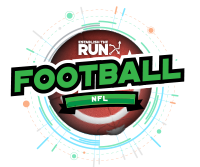To find our Underdog Rankings, click here.
Want to be a winner?
Asking that question makes it sound like I’m about to offer you life coaching classes, but I don’t mean it like that. Maybe a better way to phrase it would be, “Do you want to win at something?”, but that makes it sound like you’re in a really bad place and just need something – anything! – to go your way. But you get what I’m trying to say.
Want to be a winner? Find the easiest game.
You can dedicate your life to beating slot machines, but the truth of the matter is it’s an unbeatable game.
At the same time, you want a game with material upside. You can spend 10,000 hours mastering the Chrome Snake game, but that’s not really going to help you in life (I fully expect that to be the most controversial line of the article).
Let me give a more relevant example: NFL sides and totals. If you wake up on a Sunday morning and open your sportsbook to get some money down on that week’s games, you might as well be flipping a coin. In fact, flipping a coin would probably get you the same results over an infinite sample. This isn’t true for everyone, but it applies to most people (including me).
Thankfully, there is an alternative. Props are a much more beatable game compared to sides and totals – and Adam Levitan has already written about a few season-long player props he has bet this offseason. For those who aren’t familiar, player props are basically betting on player performance rather than game result (e.g. Patrick Mahomes 299.5 pass yards instead of Chiefs -6.5).
Many of you are probably already familiar with what prop betting is. Because of that, this isn’t exactly an introduction but rather a deeper explanation of why we focus so much on prop betting compared to other markets and how the process works from the perspective of an oddsmaker. We’ll examine stuff like how sportsbooks set their lines, why betting sides and totals is -EV, how and why props are different, and how limits work. Let’s get into it.
WHY ARE SIDES AND TOTALS -EV?
To understand why it’s so difficult to beat sides and totals, you first have to understand how sportsbooks arrive at a particular number.
Say it’s Sunday night of Week 1, at which point some (but not all) sportsbooks are going to start offering lines and totals for Week 2. Their opening numbers will be based on an algorithm as well as the insight of a sportsbook manager, but bookmakers know they aren’t going to have a perfect offering right off the bat. They don’t want to get hammered if they put out a bad number, so limits are low on these opening lines (i.e. even if you’re sitting at your computer when they come out, you can’t bet that much money).
Most of the early wagers come from sharps. If they see a book open Chiefs -4.5 against the Browns and they think it should be -6.5, they’re usually going to bet the maximum amount allowed because they believe the value will disappear if they wait. There are more variables at play – some sharps don’t play low-limit openers because they don’t want to tip their hand when they could bet at higher limits later – but that’s generally how it works.
Sportsbooks don’t treat all of their customers the same. They will tag sharps because they have data on which accounts consistently win and/or beat the closing line. There exists a misconception that oddsmakers move lines based on the amount of money coming in on each side, but that’s not really how it works. If a pro bets Chiefs -4.5 and a recreational account bets Browns +4.5, the book is still going to move the line toward the Chiefs. It’s also important to realize that recreational bettors sometimes make sharp bets. It’s just pretty random whether they make a good or bad bet, whereas the pros are consistently getting value against the closing line.
Eventually, the line will get to Chiefs -6.5, and the sharp action will stop. At this point, the sportsbook will allow people to bet more money. Of course, other factors affect the line throughout the week – injuries, weather, other new information, etc. – but that’s mostly how price discovery works.
Remember, that’s only how it works for some sportsbooks. Others will wait for price discovery to occur at market-making books before posting anything. That way, they don’t risk getting crushed by poor opening lines and can let someone else do all the work for them and reap the benefits. In fact, this is how most sportsbooks work, meaning you usually don’t even have the chance to bet on a true opening line.
Sides and totals are the two biggest markets for the NFL (and most sports). Because of that, price discovery happens quickly and lines are already mature by the time the average bettor looks at them. This also explains why you shouldn’t just follow the sharp money despite what many touts tell you. The sharp money in our example was on Chiefs -4.5 but laid off at -6.5. It’s not helpful to you to know which side the pros were betting on because the value has already dissipated by the time you’re looking at it.
When the next weekend rolls around, sides and totals are incredibly efficient markets. That’s why flipping a coin is just as good as betting into major markets right before lock. And at -110, you need to win >52.4% of the time to profit in the long-term. You might have a hot stretch here and there – just like how at some point you’d get heads five times in a row – but flipping a coin at -110 is a -EV bet. If you bet major NFL markets on a Sunday morning, you’re basically saying you think you know more than the sharpest bettors and oddsmakers in the world. Most people just gamble for fun, and there’s nothing wrong with that. But if you’re strictly in it to make money, the hubris required to place a bet like that is remarkable (unless you’re a pro).
HOW ARE PROPS DIFFERENT?
1. Oddsmakers indirectly acknowledge market inefficiency.
Find the easiest game. We can rephrase that to, “Unless you’re a pro, it’s usually not worth wasting the time, energy, and money on efficient markets because we can focus on inefficient markets instead.” NFL sides and totals are as efficient of a market as you’re going to find.
On the other hand, props are not efficient. Sportsbooks even tell us they’re less efficient by limiting the amount of money you can bet on them. We talked in the previous section about how books raise limits once they have gone through price discovery and reached an efficient line. That’s pretty much how it works across markets: Books will allow consumers to bet more money if they are more confident in their numbers. For example, Pinnacle was taking million-dollar sides bets in the minutes leading up to Denmark vs. Belgium in the 2021 Euro. It makes sense why limits were so massive in that case: The Euro is an enormous event, the match was about to start (i.e. all information was available), and Denmark and Belgium are two great teams.
With props, you’re going to get limited to $200-300 (at most) if you start winning. Some books will limit you to $10 or fewer. That’s because they know the numbers are beatable. In that regard, props are different from other types of bets because books indirectly acknowledge they are inefficient even leading right up to lock.
2. Sportsbooks put less effort into props.
If Sony Michel is ruled out during the week, you probably have a short window to bet the over on Damien Harris‘ rushing yards prop (I’m using this as an example because it actually happened last season). If Cam Newton is ruled out, the spread and total are taken down immediately because books are right on top of the news. If meteorologists are expecting a snowstorm in Green Bay, major markets will move before props do. They don’t care as much about making sure props are efficient because they can impose low limits to minimize the damage they take. Plus, it’s just straight-up difficult for sportsbooks to monitor every single prop they post. Think about it: They’re offering props on most notable players in every NFL game every week. Even if they put as much effort into props as they did sides and totals, it’s not easy to stay on top of everything.
WHY ARE PROPS DIFFERENT?
1. Most action is on major markets.
Most action is on major markets like sides and totals, so sportsbooks don’t care as much about making sure derivative markets are perfect. Especially since limits are so low, books don’t get hit that hard by posting props that are +EV for bettors. The algorithms aren’t as refined. The process of price discovery isn’t as rigorous, which sometimes leads to stale props. There are so many props that they can’t keep track of them all. As we talked about in the last section, it’s also easier to capitalize on news, weather, etc. betting on props compared to larger markets. Basically, you can sometimes get an edge just by paying attention, whereas you need to put in much more work to beat sides and totals.
2. Props are a marketing tool.
Sportsbooks have to post props because consumers demand them and their competitors have them. If a book doesn’t post props, someone who is interested in prop betting is likely to take their service elsewhere. Props are a marketing tool in that regard; books can flex that their offering is greater than their competitors, which is great for consumers because it leads to more inefficient numbers. Oddsmakers also hope to entice bettors with props and then later get them to bet into more efficient markets like sides and totals.
CLOSING REMARKS
Weekly player props aren’t the only prop market worth attacking. ESPN’s David Purdum wrote a fantastic article about why bookmakers hate the NFL Draft because it’s such an exploitable opportunity for bettors. To the surprise of absolutely nobody, Levitan and Evan Silva crushed their NFL Draft props. That’s a great example of a game worth playing because there is a sizable edge to be gained without putting in an ungodly amount of effort.
The edge in prop betting isn’t going to last forever. However, it exists for now, and ETR is going to attack it once again this season. You won’t get rich betting props because limits are low, but you can easily make a good chunk of change if you know what you’re doing. Levitan has been posting prop plays dating back to last season, but I thought it would be a good idea to explain why we focus on these markets rather than just vaguely saying that it’s more beatable than sides and totals.



